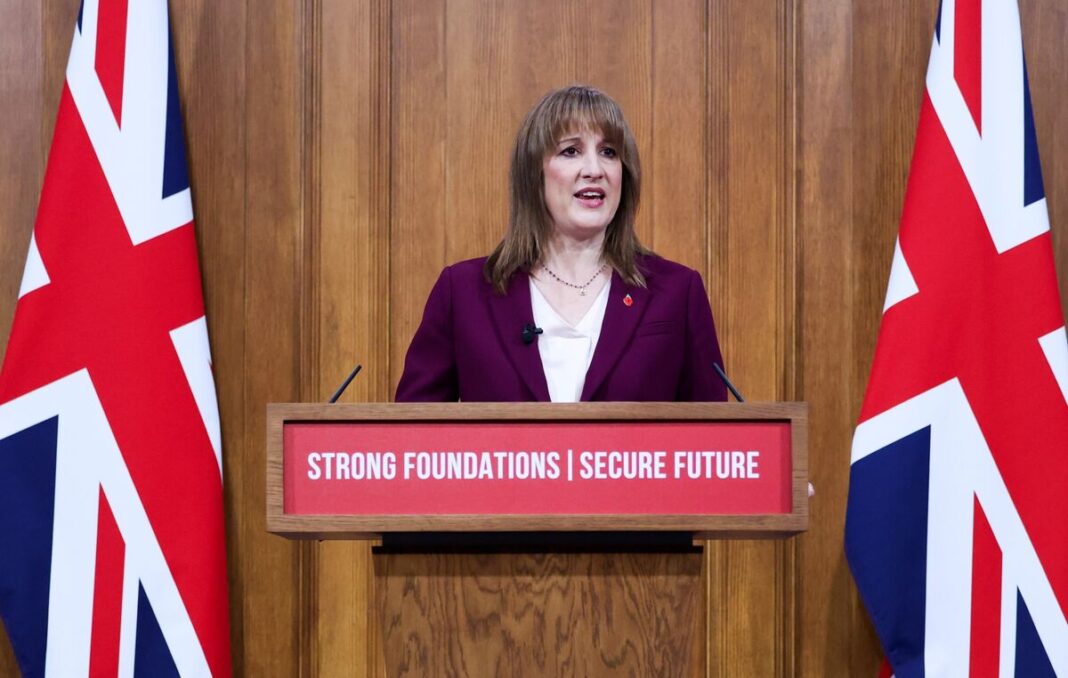Rachel Reeves and the Task Ahead: Tackling Britain’s Debt Challenge
Rachel Reeves has recently stepped into a pivotal role as Chancellor of the Exchequer, and her mandate could not be more critical. As economic uncertainty looms, a leading think tank has highlighted the urgent need to run primary budget surpluses, something Britain hasn’t accomplished in 25 years. This article delves into the implications of this challenging directive, the state of the British economy, and the potential effects of such fiscal policies on citizens and businesses alike.
Understanding Primary Budget Surpluses
At its core, a primary budget surplus occurs when a government’s revenue exceeds its non-interest expenditures. In simpler terms, it means that the government is generating more money than it spends, excluding the costs incurred by servicing its existing debt. This surplus is essential for reducing the overall debt burden and allows for more sustainable fiscal policies in the long term. For Reeves, achieving this surplus is not just a fiscal target; it’s paramount for addressing the nation’s “unsustainable” debt trajectory.
The Context: A Long-Standing Financial Dilemma
Britain’s economic framework has faced considerable strain over the years, exacerbated by global events such as the COVID-19 pandemic and ongoing geopolitical tensions. The country’s national debt has ballooned, raising questions about its sustainability. The think tank’s warning serves as a stark reminder that the past decades of budgetary gaps may have led to a precarious position for future generations. Implementing a primary surplus will involve difficult trade-offs, reminding us that fiscal health is not merely a theoretical exercise but a practical necessity for stability.
The Implications for Public Services
One of the most immediate concerns surrounding the push for budget surpluses is the potential impact on public services. Cuts to funding may be on the horizon as the government seeks to balance the books. Discussions surrounding healthcare, education, and social services could provoke debate among policymakers and voters alike. Citizens depend on these essential services, and any perceived threats to their quality may lead to public pushback. It’s crucial for Reeves to communicate the rationale behind budgetary decisions effectively to mitigate backlash from the public.
The Business Landscape: A Mixed Bag
For businesses, the push for a budget surplus could yield both challenges and opportunities. On one hand, the tightening of fiscal policies may lead to higher taxes or reduced government spending, which could squeeze small and medium enterprises already grappling with inflation and supply chain disruptions. Conversely, a more stable fiscal environment could foster investor confidence, ultimately benefiting businesses looking to expand. Reeves will need to navigate these waters with an eye towards both immediate impacts and long-term economic growth.
Public Sentiment and Political Ramifications
As Reeves embarks on this ambitious fiscal journey, public sentiment will be a crucial gauge of her success. Voter reactions to new policies and economic measures can dramatically influence political capital. If citizens perceive budget surpluses as fostering a healthier economy, they may be more willing to accept necessary austerity measures. However, an adverse reaction—particularly in the face of cuts to services—could lead to significant political repercussions, complicating the Chancellor’s path forward.
Navigating the Path Forward
Achieving a primary budget surplus in an environment of escalating costs and varying economic demands will require innovative approaches. The government may need to reassess taxation strategies, create incentives for growth, and build alliances with the private sector. Reeves has the opportunity to champion a holistic approach that balances the need for fiscal prudence with the imperative of growth and development. Engaging with economists, business leaders, and the public will be essential in crafting strategies that resonate across segments of society.
The Role of Economic Advisors
In her quest for fiscal responsibility, Reeves will likely lean heavily on economic advisors to navigate this complex landscape. The insights and recommendations from think tanks will be invaluable, providing data-driven strategies that support sustainable budgeting. Collaborating with these institutions can also enhance public trust, as transparency and informed decision-making become cornerstones of her administration.
Conclusion – A Balancing Act
The road ahead for Chancellor Rachel Reeves is fraught with challenges, but it also presents opportunities to reshape the financial future of the UK. Running primary budget surpluses is not merely an economic goal; it’s a fundamental shift in governance that requires tenacity, creativity, and responsiveness. As the nation looks towards this new chapter, the efficacy of her policies will be closely watched, not just for immediate results but for their long-term implications on the fabric of British society.



